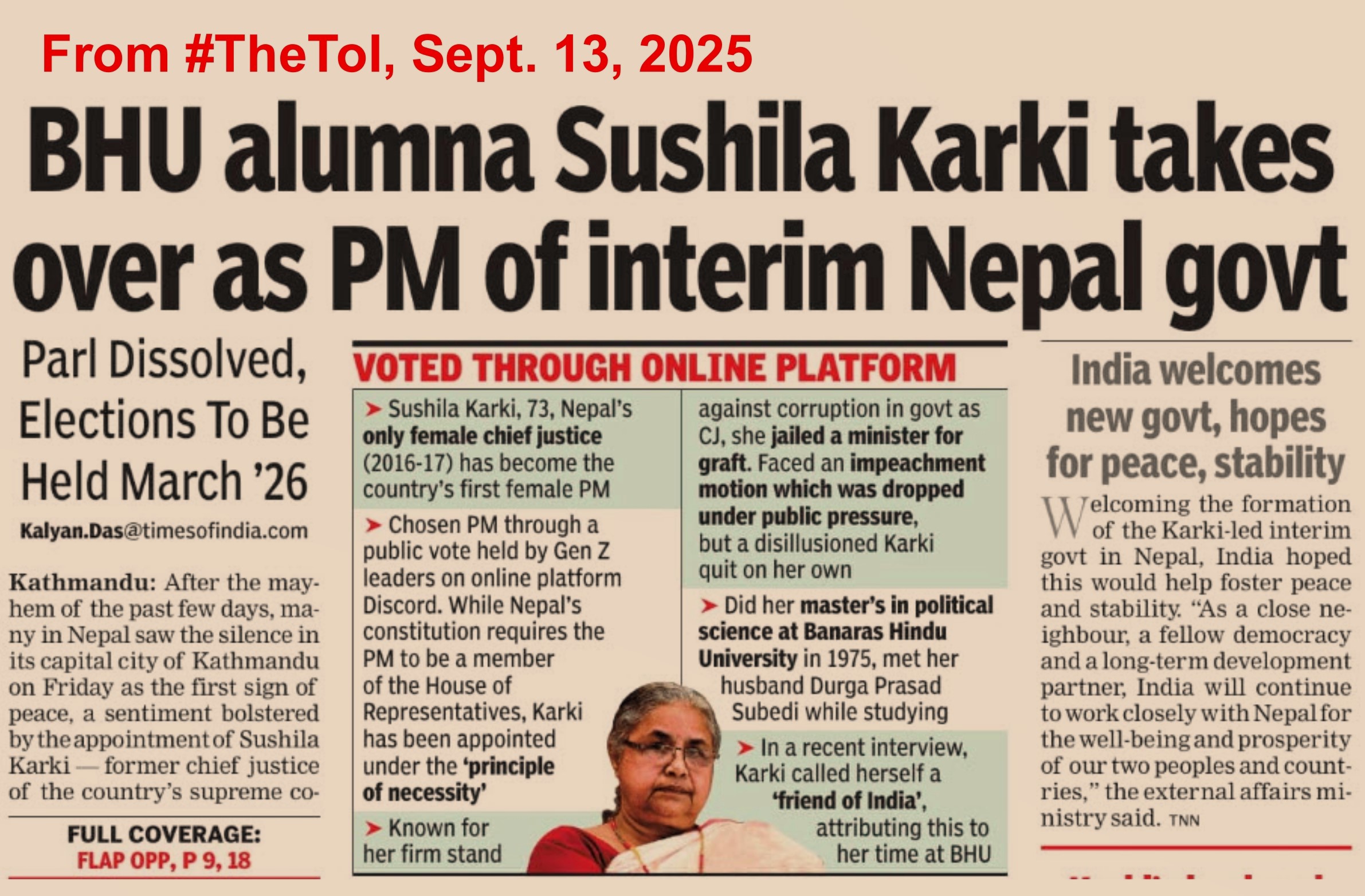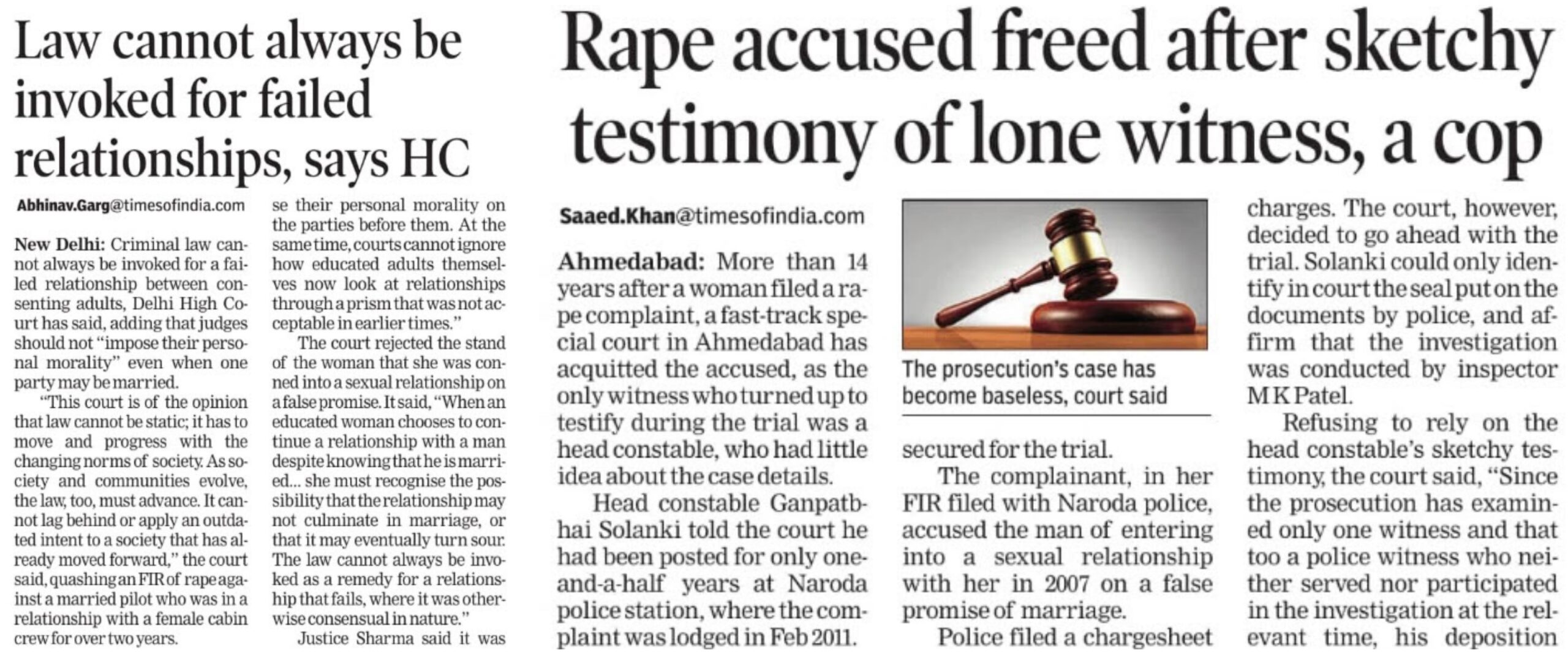
September 12, 2025:
Retired Chief Justice of the Supreme Court of Nepal assumes political power through a bloody protest. More than 50 persons are said to have died in this protest. Let us hope that Indian judiciary does not take a cue from it. Why I am saying so is because Indian judicial system has already stretched its jurisdiction to such an extent that it has potential to pull down a Government. There is hardly any administrative area where it has not interfered in the name of human rights, fundamental rights, Articles 21 and 32 of the Constitution of India.
Our judicial system has gone to the extent of telling the Executive to induct women in some of the defence sectors where her honour may be in danger if she is taken Prisoner of Word by enemy country. The Executive’s apprehension was simply brushed aside, ignoring the fact that women’s body is biologically different from man. A women undergoes menstruation and pregnancy. Her situation at that time is different from that of man. An embryo is in her womb who after some time will come out in this world as a human being. Suppose pregnancy is in progress when the war is at peak, and it is a do or die situation. The country needs a particularly trained defence personnel for a particular operation, and she is pregnant at that time expecting delivery in near future. All these decisions are assigned by the Constitution of India to the Executive but our judicial system acts proactively.
Our judicial system has even fixed timeline for the President and the Governor to give assent to the bills passed by the legislature. However, there is hardly any judgment by the Supreme Court of India telling the citizens that they ought to perform their fundamental duties. Populism is quite apparent in judicial approach. The judicial system ought to lay down law by adopting three-pronged approach – fundamental rights, directive principles and fundamental duties. That would provide more stability to law.
My primary concern is that hidden political power in the hands of judicial system is dangerous. Judicial decisions do not remain objective. Judicial system starts passing value judgments whereas political values should come through political process and not through judicial process. A populist judicial decision may be good in short term but may not be so in the long term. Take for example the laws laid down by the judicial system for protection of women. In short term, they provided much needed protection to women but then misuse of such laws started. Now the judicial system is retracing its own steps. Rape law was given widest amplitude but now it is quite evident that protection given to women is being misused to frame men when man-woman relationship runs into trouble.
Even at the time of writing of this article, I am seeing two newspaper reports from the Times of India (Sept. 14, 2025) , where judicial system is stepping back.

It is for the above reasons I do not view Nepal happenings with cheer. It would have been better for the retired Chief Justice of Nepal to decline invitation to be the Prime Minister so that judicial values do not get mixed up with politics. A clear message would have been sent that judiciary is not interested in political power. They do their judicial work and then retire into life of an ordinary person. But perhaps a peculiar geopolitical situation of Nepal made it unavoidable for the retired Chief Justice to do it. Nepal is a land-locked country heavily dependent on India and China. Its economy is not that good. Literacy is also not that advanced. People have some primitive beliefs. Political system is not that mature. The situation in India is reverse of it. It is a highly progressive country. There are at least two political parties which can replace each other to run the country.Let us hope that our judicial system does not aspire for post-retirement political appointments the way it has happened in Nepal. Judicial restraint is a part of judicial ethics. If an Indian judge tries to do it the way it has happened in Nepal, my suggestion to my fellow countrymen is to oppose it firmly. There are three instances when judges assumed political offices but it should not become a practice. Justice Hidayatullah became President by default when the President and Vice President both resigned. Justice V.R. Krishna Iyer was a Minister in Kerala and then became Judge. Justice Baharul Islam shuttled between politics and judiciary. All this happened long time back. It must be opposed now.
If judicial appointment is followed by political appointment, there is every possibility that a Judge’s judicial functioning will get coloured by the anticipation he may be having in his mind about his future appointment. A judge is disqualified ab inito to hold a political office. Once his tenure comes to an end, he should either lead a retired life or do chamber practice or do private arbitration or provide free legal aid but should not have any aspiration to become Prime Minister or Chief Minister or a minister. That is necessary for independence of judiciary. The judges themselves have laid down law that justice must not only be done but it must also be seen to have been done.

Click the link below to download PDF
